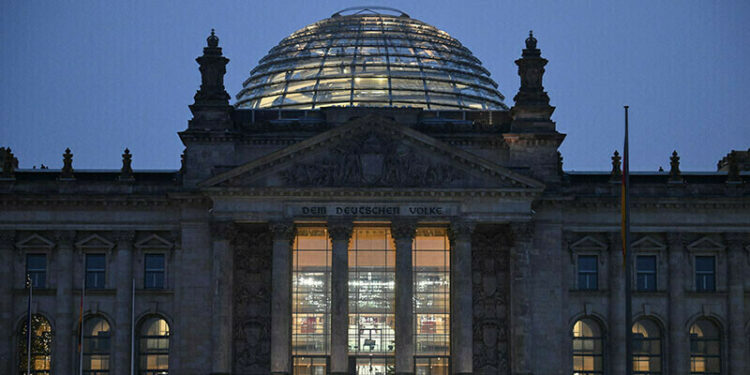German President Frank-Walter Steinmeier has dissolved the lower house of parliament to hold snap elections on February 23.
According to the British news agency ‘Reuters’, President Frank-Walter Steinmeier said in Berlin that ‘stability in these difficult times requires a government that is capable of working and has a reliable majority in parliament, which is why early elections are the right way forward for Germany.’
It should be remembered that Chancellor Olaf Scholz, who belongs to the center-right wing of Germany, failed to win a vote of confidence from the parliament on December 16 after weeks of crisis, after which the way was paved for early elections on February 23 in the country with the largest economy in Europe.
In a speech, the German president said that solving problems after the elections should once again become the main task of politics.
The German president (whose post has been largely ceremonial since the post-war era) also called for a fair and transparent campaign.
President Frank-Walter Steinmeier said that foreign influence was a threat to democracy, whether covert, as in the recent Romanian elections, or overt, as is currently being done, particularly on the (social media) platform X.
Olaf Scholz, of the Social Democrats, who will head a caretaker government until a new one is formed, lost a confidence vote in parliament earlier this month after Finance Minister Christian Lindner left the Free Democrats.
The referendum also opened the campaign, with conservative rival Friedrich Merz (who is a likely candidate to replace Scholz according to a poll) saying the current government has imposed too many regulations and is holding back progress.
Most polls show the conservatives with a lead of more than 10 points over the Social Democrats (SPD), with the far-right Alternative for Germany (AfD) slightly ahead of the SPD, while the coalition Greens are in fourth place.
Germany’s mainstream parties have refused to form a government with the AfD, but its presence has complicated the “parliamentary mathematics”, making it more likely that a weak political coalition will form.

























